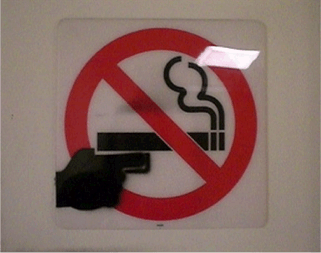No no no no!
Mark this day because for once, I do
not at all agree with
Patric!
Prescient my ass!
That
letter is about as bad as it gets, and stupid to boot!
Of course Sanctuaries work!
Claiming otherwise is just plain stupid - and you sure don't need to go squandering resources for some big peer-reviewed paper to come to the conclusion that if Shark fishing is outlawed, an overriding portion of the fishermen will stop doing so!
Yes the stereotype of the ever-cheating fisherman is certainly grounded in experience - and still, that's undoubtedly the minority! The vast majority of the local fishers are law abiding citizens and will observe the new law once they have been made aware of the changes, promise!
And the foreigners, as in distant water fleets? That's more tricky, see below.
Which brings us straight to the enforcement.
No, it won't cost millions of dollars, and this is why.
What constitutes the "best" conservation strategy is always situation- and species specific.
Here we're talking about the pros and cons of Shark Sanctuaries, i.e. generally speaking places where the commercial exploitation of Sharks is banned - meaning that each and every landed or traded Shark or fin is illegal by definition, a fact that greatly simplifies enforcement when compared to management plans.
We're also talking, at least until now, about small developing countries where everybody knows everybody, and where as a consequence, hiding one's activities, at least on land, is virtually impossible.
In a simplified way, we're usually dealing with two distinct fisheries.
A. Coastal fishery targeting coastal Sharks.
Obviously, one cannot monitor every coastal fisher.
But the good news is, we don't have to! What we want to tackle is the situation whereby coastal fishermen target Sharks commercially for their fins, thus catching many more than they would ever consume in a subsistence fishery.
Inevitably, those fins get sold to intermediaries who aggregate and often dry them, and then ship them to Asia. It is those fin traders that are the bottleneck in the supply chain and consequently, it is they who need to be targeted - which is easy and cheap as they are relatively few, everybody knows who they are and the activity all but impossible to hide.
And once the demand they represent has been eliminated, the fishermen will stop killing those surplus Sharks!
B. Offshore fishery targeting pelagic Sharks
That's quite a bit more tricky - but then again, maybe not so much.
Local vessels usually land their catch locally where it once again ends up with the fin dealers. Foreign distant water vessels on the other hand are inevitably declared to be Tuna vessels and operate on licenses - and at least here in the SoPac, this implies that they have to carry observers. Once one changes the mandate of those observers to not only monitor Tuna quotas but also prevent the retention of Sharks, much of that activity can be curtailed.
Will there be shenanigans?
Undoubtedly so, namely
trans-shipment at sea and poaching, the latter especially in countries
close to Asia like Palau where specialized poachers can dash in and back
out - but overall, I am convinced that fishing and trading volumes will be greatly reduced
compared to prior to the declaration of the Sanctuary!
In brief, by being smart, creative, efficient and effective, one can shut down or at least greatly limit Shark fishing and the fin trade with very little resources indeed!
And this especially if the enforcement is backed by good prosecution and even more so, by draconian fines - see examples of legislation
here, the example on page 14ff being the failed legislation for the Fiji Shark Sanctuary Decree which would have been the most exhaustive and stringent legislation at that time.
In fact
this example from the Marshals shows that enforcement can even become financially self sustaining, and this on top of the financial benefits of good PR (= tourism) and a healthier ocean yielding more Fish!
So no, these are not SINOs as numbers are undoubtedly down and enforcement is actually happening, and no there is no need to wait before declaring further sanctuaries!
And the alternative?
What about the
properly designed, implemented, and enforced fisheries management plans that David advocates in
this post that I encourage everybody to read?
In theory, I cannot but agree that this is by far the best long term solution.
In practice, however, it is just wishful thinking, at least when it comes to the developing word. It just aint gonna happen, at least not in the foreseeable future - and we just cannot afford to sit by idly and wait, hence the advocacy of sanctuaries and fin bans
as stop gap measures!
The reason is obviously lack of resources.
Assuming that somebody could assist in designing them, David's perfect management plans would be extremely detailed and complicated, and because of that, the implementation and especially the monitoring and enforcement would become equally complicated and above all, extremely costly. As an example, a NPoA Sharks would have to encompass different rules for different species and possibly even regions and time frames. On top of being confusing for the fishermen, this would e.g. require the enforcers to differentiate between "legal" and "illegal" Sharks and fins, and this between species but often even within the same species (e.g. think region- or vessel-specific quotas) and opening up loopholes as big as barn doors.
Developing nations just don't have the funds and the staff to do this, at least not properly, meaning that the enforcement would be woefully inadequate and that the management goals would not be reached.
Fiji beware - but happy to be proven wrong!
At least for me, sanctuaries are merely stop gap measures aimed at preserving what needs preserving right now before it is too late. This means that I'm fully in favor of adding provisions whereby exemptions can be grated for the establishment of sustainable fisheries for Sharks.
But let me
repeat: let the fishing industry and the traders fund the according research and let
them come up with substantiated and detailed proposals via reputable third-party certifications - much like an ecological impact assessment!
Long story short?
Advocating both sanctuaries and sustainable fishing is not mutually
exclusive - it is about finding the best solutions for determined
situations at a determined time, and to be willing to accept change whenever adequate. Right now, sanctuaries and fin bans are far cheaper and easier to implement and thus far more efficient and effective, especially in the developing word - but long-term, sustainable fishing is by far the better solution.
So let's be more practical and less dogmatic shall
we?




































